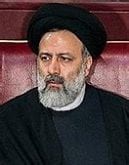politico— The Iran nuclear talks are on the precipice of collapse over last-minute Russian demands for sanctions protection, according to two diplomats.
Negotiations have reached an impasse over the Russian requests, diplomats said, imperiling the revival of a 2015 landmark deal under which Iran limited its nuclear ambitions in exchange for sanctions relief.
Russia is requesting that any return to the agreement include guarantees that any future Russian business with Iran be exempt from EU and U.S. sanctions — a late curveball from Moscow in response to the crippling penalties the country is facing over its invasion of Ukraine.
But negotiators from the other world powers involved — including the U.S., U.K., France, Germany and China, as well as senior EU diplomats — can’t find a way to accommodate the demands, diplomats said. So after 11 months of intermittent negotiations in Vienna, talks will take a break to allow for bilateral conversations between Iran and Russia over the situation. Iran seems eager to close the deal, given the potential revenue it can gain from exporting its oil with prices now soaring and its need for sanctions relief.
“A pause in #ViennaTalks is needed, due to external factors,” EU foreign policy chief Josep Borrell tweeted Friday morning.
The development is a remarkable U-turn. As recently as last week, it was widely expected that negotiators were about to unveil an agreement to return to the 2015 deal, formally known as the Joint Comprehensive Plan of Action (JCPOA).
Borrell nodded at that fact in his tweet: “A final text is essentially ready and on the table,” he wrote.
Yet one senior Western official familiar with the situation told POLITICO the Russian demands were impossible to accommodate since the negotiation in Vienna was about bringing Iran and the U.S. back into compliance with the 2015 deal, and not about sanctions on Moscow.
Ali Vaez, an analyst with the International Crisis Group who has contacts on multiple sides of the talks, confirmed that the situation was at a critical stage.
“The talks seem to have stalled, primarily because of Russian demands,” he said.
U.S. State Department spokesperson Ned Price on Thursday urged Russia to help achieve a return to the Iran deal, saying it is in Moscow’s interest. He stressed that time was short and key issues remain unresolved.
“We’ve made it very clear … that the new Russia-related sanctions are wholly unrelated to the JCPOA,” Price said. “We also have no intention of offering Russia anything new or specific as it relates to the sanctions.”
On Tuesday, Russia’s chief negotiator, Mikhail Ulyanov, presented Moscow’s demands to Enrique Mora, the senior EU official coordinating and mediating the talks. The ask went beyond what many had hoped would be a simple request for sanction waivers to enable Russia to fulfill its role in implementing a restored nuclear deal — something negotiators say they have already been able to integrate into the draft agreement.
Yet Ulyanov’s request coincided with what Russia’s Foreign Minister Sergey Lavrov had said on Saturday when he asked for “a written guarantee … that the current process triggered by the United States does not in any way damage our right to free and full trade, economic and investment cooperation and military-technical cooperation with the Islamic Republic.”
Officials said that during the last few days, the atmosphere at the talks was extremely tense and the stress level was “cruel” — as a second official put it — given that the most difficult sticking points seemed to have been solved before the Russian invasion of Ukraine began to threaten the emerging breakthrough.
Moscow is concerned about the expected influx of Iranian oil into the market after a restored nuclear deal, which would create competition for Russian oil and ease energy prices, potentially enabling the West to impose more sanctions on Russia over its Ukraine assault.
Officials familiar with the negotiations said restoration of the nuclear deal without Russia is theoretically possible. It would primarily require finding another country, such as China or possibly even Kazakhstan, to ship out Iran’s excess enriched uranium, exchange it for natural uranium, and to work with Iran to convert its Fordow nuclear plant into a research facility.
Aside from the Russia hurdle, officials said the 20-page draft document is mostly done with only some small editorial tweaks ongoing. People familiar with the discussions said there’s even a compromise about to emerge over the controversial Iranian request to take the Islamic Revolutionary Guard Corps, an Iranian military branch, off the U.S. terrorist list. It seems some small details are still being worked out on this issue, diplomats said.
Over the past few weeks, negotiators were rushing to reach the finish line, aware that Russia’s war in Ukraine posed a threat to the sensitive talks.
The months of talks were also beginning to wear out diplomats, who have spent countless hours negotiating minute details in the draft document, including highly technical specifications over how to bring Iran’s nuclear program back into a box and roll back U.S. sanctions.
The costs of the talks completely failing would be enormous, injecting new uncertainty into the Middle East. Iran has been steadily building its nuclear capabilities as talks have dragged on. Recently, the International Atomic Energy Agency reported Tehran had doubled its stockpile of uranium enriched at 60 percent, close to weapons-grade level.
 Shabtabnews In this dark night, I have lost my way – Arise from a corner, oh you the star of guidance.
Shabtabnews In this dark night, I have lost my way – Arise from a corner, oh you the star of guidance.



